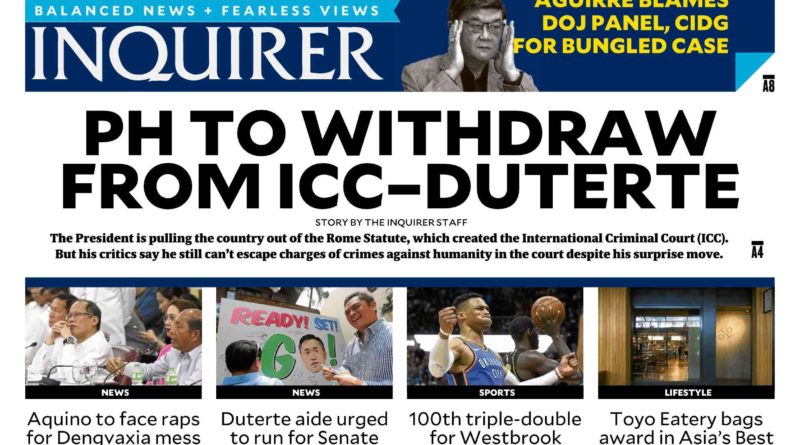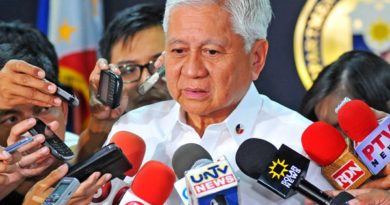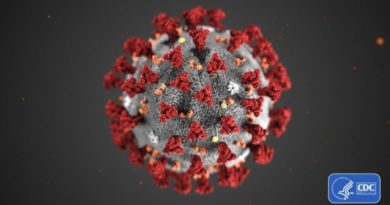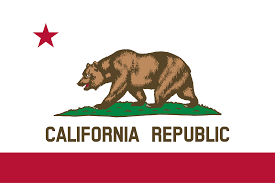ASEANEWS HEADLINE: PRESIDENT Rodrigo Duterte dumps International Criminal Court (ICC) – By The Philippine Daily Inquirer – Thursday, March 15, 2018
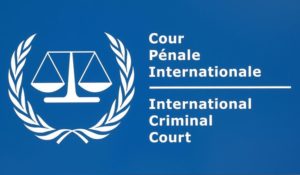 International Criminal Court Logo
International Criminal Court Logo
.
.
PRESIDENT Rodrigo Duterte said Wednesday he was pulling the Philippines out of the treaty underpinning the International Criminal Court, which is examining his deadly war on drugs.
.
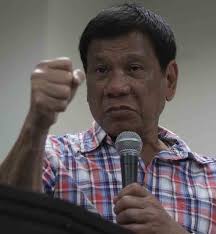 It is apparent that the ICC is being utilized as a political tool against the Philippines.
It is apparent that the ICC is being utilized as a political tool against the Philippines.
—President Rodrigo Duterte, announcing the country’s withdrawal from the International Criminal Court.
PRESIDENT Rodrigo Duterte
“I… declare and… give notice… that the Philippines is withdrawing its ratification of the Rome Statute effective immediately,” Duterte said in a statement.
The Hague-based ICC announced last month it was launching a “preliminary examination” of Duterte’s bloody anti-drug crackdown that has drawn international concern.
Police say they have killed nearly 4,000 drug suspects as part of the campaign, while rights groups claim the toll is around three times the numbers given by authorities.
Duterte, who is accused of stoking the killings with inflammatory statements, has taken issue over the Philippines becoming the first Southeast Asian nation put under a preliminary examination by the ICC prosecutor.
Opened in 2002, the ICC is the world’s only permanent war crimes court and aims to prosecute the worst abuses when national courts are unable or unwilling.
The Philippines, under previous President Benigno Aquino III, ratified in 2011 the Rome Statute which underpins the ICC, giving the tribunal authority to investigate crimes on its soil. Withdrawing the country’s ratification of the treaty would mean the ICC would no longer have jurisdiction over the Philippines.
On Wednesday Duterte, a former lawyer, attacked the ICC’s preliminary examination into his anti-narcotics campaign saying it was “unduly and maliciously created.”
“It is apparent that the ICC is being utilized as a political tool against the Philippines,” he said.
In his statement, Duterte cited “baseless, unprecedented and outrageous attacks on his person” as well as his administration.
“The acts allegedly committed by me are neither genocide nor war crimes. The deaths occurring in the process of legitimate police operations lacked the intent to kill,” he added.
But even as early as Oct. 13, 2016, when Duterte had only been in office less than four months, the ICC prosecutor Fatou Bensouda said in a statement that she was “deeply concerned” over reports of extra-judicial killings of over 3,000 alleged drug users and pushers.
Adding pressure on Manila, in February, the UN Human Rights Council in Geneva raised the country’s human rights record with Iceland Foreign Minister Gudlaugur Thor Thordarson calling on the Philippines to accept the visit of a UN special rapporteur.
Philippine officials had initially said in February that the country was ready to cooperate but asked for fairness.
Duterte’s spokesman Harry Roque also said they would refuse a visit by one such rapporteur Agnes Callamard, who had previously been pressing to investigate the killings.
But Roque has also said the ICC has no jurisdiction over the case because the tribunal was intended as a “court of last resort” and the Philippine courts were fully functioning.
The Philippines is among the 124 countries that are members of the United Nations-backed ICC, the world’s only permanent war crimes court.
The permanent international court can prosecute individuals for genocide, crimes against humanity, war crimes and the crime of aggression.
In a strongly worded statement, President Duterte said that there appears to be a concerted effort on the part of the UN special rapporteurs to paint him as a ruthless and heartless violator of human rights who allegedly caused thousands of extrajudicial killings.
The President accused the ICC of prematurely making a public pronouncement of a preliminary examination, which effectively created the impression that he is to be charged for serious crimes falling under its jurisdiction.
“The attempt to place me under the jurisdiction of the ICC is brazen display of ignorance of the law. The ICC has no jurisdiction nor will it acquire jurisdiction over my person. The ICC has no jurisdiction nor will it acquire jurisdiction over my person,” Duterte said.
Duterte, a former prosecutor, said that Rome Statute’s contention that he can be charged under international law is not effective nor enforceable in the Philippines.
“Under our law, particularly the New Civil Code, a law shall become effective only upon its publication in the Official Gazette or in a newspaper of general circulation. Devoid of the legal required publication, the Rome Statute is ineffective and unenforceable,” the President said.
The President also slammed UN special rapporteur Callamard and UN High Commissioner on Human Rights Zeid Ra’ad al-Hussein for being biased.
He said that when the Philippine government made itself a signatory to the Rome Statute, it was on the assumption that the internationally accepted principles of justice in relation to the Philippines’ constitutional requirement on due process would be upheld. With AFP With AFP / March 15, 2018 at 01:55 am by Vito Barcelo /
.
ASEAN NEWSPAPER HEADLINES:













All photographs, news, editorials, opinions, information, data, others have been taken from the Internet ..aseanews.net | [email protected] / For comments, Email to : Aseanews.Net | [email protected] | Contributor:-

